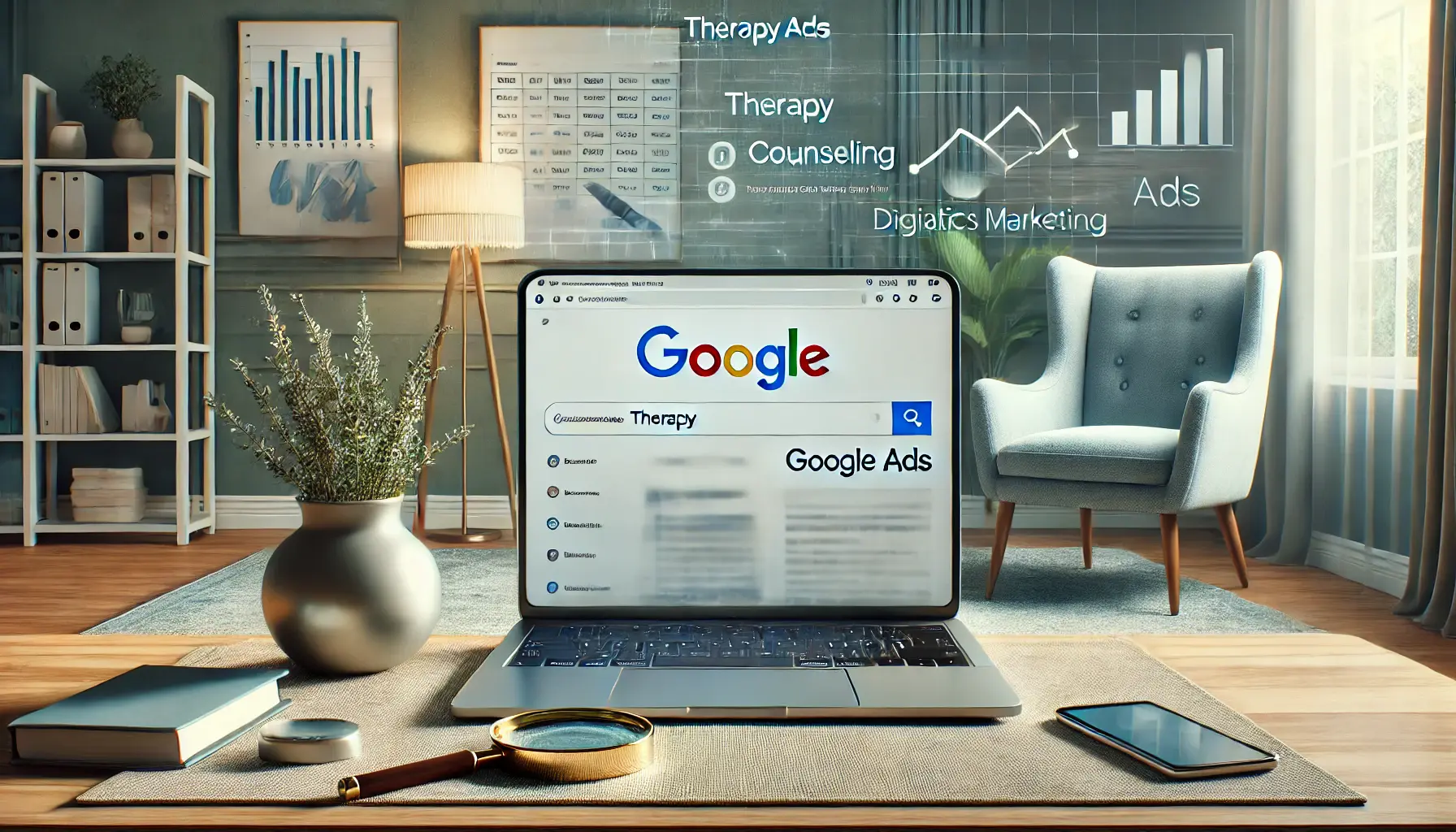Video marketing has emerged as a pivotal strategy in the digital era, especially for sectors where trust and professionalism are paramount.
Legal services, with their complex concepts and the necessity for personal connection, stand to gain significantly from this dynamic medium.
The integration of video marketing into legal services SEO not only enhances online visibility but also fosters a deeper connection with potential clients.
By leveraging video, law firms can demystify legal processes, showcase their expertise, and build a foundation of trust even before the first consultation.
The evolution of digital marketing has seen a shift towards more engaging and accessible content, with video leading the charge.
For legal professionals, video marketing offers a unique opportunity to convey their message in a way that is both informative and relatable.
This approach not only improves the user experience but also significantly boosts a website’s SEO performance.
As search engines increasingly prioritize content that engages and retains viewers, incorporating video into a law firm’s marketing strategy becomes not just beneficial but essential for staying competitive in the digital landscape.
- Understanding the Basics of Video Marketing
- Strategies for Effective Video Content
- Optimizing Video Content for Search Engines
- Engaging Your Audience with Storytelling
- Leveraging Client Testimonials and Case Studies
- Measuring the Success of Your Video Marketing
- Future Trends in Video Marketing for Legal Services
- Embracing the Future of Video Marketing in Legal Services
- FAQs on Video Marketing for Legal Services
Understanding the Basics of Video Marketing
What is Video Marketing?
At its core, video marketing involves creating and leveraging video content to promote services, educate potential clients, and enhance online presence.
In the context of legal services, it translates to producing videos that explain legal concepts, share insights into the law firm’s practice areas, or highlight client testimonials.
The goal is to make legal advice more accessible and to showcase the law firm’s expertise and approachability.
Video content can vary widely, from detailed explanations of legal processes to quick tips on common legal issues.
The versatility of video allows law firms to tailor their content to meet the specific needs and interests of their target audience, making it a powerful tool for engaging potential clients and encouraging them to take the next step in their legal journey.
Benefits of Video Marketing for Legal Services
Video marketing offers numerous advantages for legal services.
Firstly, it enhances online visibility and search engine rankings.
Videos are more likely to appear in search results and can significantly increase the time visitors spend on a website, which is a key factor in SEO performance.
Secondly, video content helps demystify complex legal concepts, making them more understandable to the layperson.
This educational approach not only informs potential clients but also builds trust by demonstrating the law firm’s knowledge and expertise.
Moreover, video marketing allows for a more personal connection with viewers.
Through video, lawyers can convey their personality, empathy, and professionalism, helping potential clients feel more comfortable and confident in choosing their services.
This emotional connection is difficult to achieve through text alone and can be a decisive factor in a person’s choice of legal representation.
Incorporating video into your legal services marketing strategy can significantly enhance your online presence, improve SEO, and foster a deeper connection with potential clients.
Strategies for Effective Video Content
Creating impactful video content requires more than just a camera and a microphone.
It demands a strategic approach that aligns with the goals of your law firm and the needs of your potential clients.
Here are key strategies to ensure your video marketing efforts are effective and engaging.
Firstly, understanding your audience is crucial.
Knowing who you are speaking to, their concerns, and what information they seek will guide the content of your videos.
Tailoring your message to address these needs directly can significantly increase engagement and conversion rates.
Content Planning and Types of Videos
- Educational Videos: Break down complex legal topics into digestible pieces. These can include ‘How-to’ guides or explanations of legal terms and processes.
- Client Testimonials: Share stories and experiences from past clients to build trust and credibility with prospective clients.
- Firm Overview Videos: Introduce your team, your mission, and what sets your firm apart from others. This helps humanize your brand and build a personal connection.
- FAQ Sessions: Address common questions you receive from clients. This not only provides valuable information but also boosts your SEO by aligning with search queries.
Production Quality and SEO Optimization
While the authenticity of the content is vital, the quality of the video also plays a significant role in viewer engagement.
High-quality visuals and clear audio can make a significant difference in how your message is received.
Additionally, optimizing your videos for SEO by including relevant keywords in the title, description, and tags can help your content reach a wider audience.
Remember, the goal of your video content should not only be to inform but also to engage and persuade.
A call-to-action (CTA) at the end of your videos is essential, guiding viewers on what to do next, whether it’s contacting your firm, subscribing to your channel, or watching another video.
Consider incorporating a mix of video types into your marketing strategy to address the diverse needs of your audience and keep them engaged with your content.
Optimizing Video Content for Search Engines
For legal firms venturing into video marketing, understanding how to optimize video content for search engines is crucial.
SEO for video content not only increases visibility but also drives more targeted traffic to your website.
Here are essential tips for optimizing your video marketing efforts.
Firstly, keyword research is foundational.
Identifying the keywords and phrases your potential clients are using to find legal services like yours is critical.
These keywords should be naturally incorporated into your video titles, descriptions, and even the spoken content within the videos.
Video Titles and Descriptions
Your video’s title and description play a significant role in its discoverability.
The title should be compelling and include your main keyword, ideally at the beginning.
The description offers more space to include additional keywords, a summary of the video content, and a CTA.
This not only helps with SEO but also provides viewers with a clear understanding of what to expect from your video.
Thumbnail Selection
The thumbnail is often the first thing viewers notice.
Selecting an engaging and relevant thumbnail can significantly impact your video’s click-through rate.
It should be visually appealing and representative of the content within your video.
Hosting Platform and Embedding
- Choose the Right Hosting Platform: Platforms like YouTube and Vimeo are not only popular but also optimized for search engines. Hosting your videos on these platforms can leverage their SEO benefits.
- Embed Videos on Your Website: Embedding videos on your website can increase the time visitors spend on your site, a positive signal to search engines. Ensure the page content is relevant to the video and includes the targeted keywords.
Additionally, creating a video sitemap and submitting it to search engines can further enhance your video content’s visibility.
This helps search engines find and index your videos, making them more likely to appear in search results.
Remember, the ultimate goal of optimizing your video content for search engines is to reach and engage more potential clients.
By following these SEO best practices, you can increase the visibility of your legal services and connect with individuals in need of your expertise.
SEO optimization is an ongoing process. Regularly review and update your video content’s SEO elements to ensure continued visibility and engagement.
Engaging Your Audience with Storytelling
Storytelling is a powerful tool in video marketing, especially for legal services where building trust and connecting on a personal level are crucial.
A well-told story can captivate your audience, making complex legal concepts more relatable and memorable.
Here’s how to harness the power of storytelling in your video marketing strategy.
Start with understanding your audience’s challenges and concerns.
This insight allows you to craft stories that resonate with their experiences, fears, and aspirations.
Whether it’s a client success story, a day in the life at your firm, or a narrative around a common legal issue, the story should always aim to connect with your audience on an emotional level.
Elements of a Compelling Story
- Character: Every story needs a relatable character. In legal videos, this could be a client, a lawyer, or a representation of the audience themselves.
- Conflict: Highlight the legal challenge or problem faced by the character. This conflict should be something your target audience can empathize with.
- Resolution: Showcase how your legal services provided a solution to the conflict. This not only demonstrates your expertise but also gives hope and reassurance to potential clients.
Using Visuals and Emotions
Visual elements play a significant role in storytelling.
Use visuals to reinforce the narrative, whether it’s through reenactments, client testimonials, or even animated explanations.
The emotional impact of your story is what will make it stick with your audience.
Aim to evoke feelings of trust, relief, or empowerment, encouraging viewers to see your firm as the solution to their legal needs.
Remember, the goal of storytelling in video marketing is not just to inform but to engage and persuade.
Your stories should always lead to a clear call to action, guiding viewers on what to do next if they find themselves relating to the story you’ve told.
Authentic storytelling can significantly enhance the effectiveness of your video marketing, creating a lasting impression on your audience.
Leveraging Client Testimonials and Case Studies
Client testimonials and case studies are invaluable assets in video marketing for legal services.
They provide tangible proof of your firm’s success and reliability, directly from those who have experienced your services first-hand.
Here’s how to effectively incorporate these elements into your video marketing strategy.
Client testimonials should be authentic and reflect genuine experiences.
Select testimonials that highlight various aspects of your service, such as your expertise, the personal attention clients received, or the successful outcomes of their cases.
This variety ensures that potential clients with different concerns can find a testimonial that resonates with them.
Creating Impactful Case Studies
Case studies go a step further by delving into the specifics of a client’s case, presenting the challenges faced, the strategies employed, and the outcomes achieved.
These stories not only demonstrate your firm’s capability but also educate potential clients about the legal process.
When producing case study videos, focus on the narrative arc—setting the stage, introducing the conflict, and celebrating the resolution.
This structure helps viewers follow along and understand the value your firm provided.
Best Practices for Testimonials and Case Studies
- Keep it Real: Authenticity is key. Ensure that testimonials and case studies are genuine and reflect real client experiences.
- Focus on Relevance: Choose stories that are relevant to your target audience. Highlighting cases similar to those your potential clients might face can significantly increase the impact of your video.
- Professional Production: While authenticity is crucial, the quality of the video should not be compromised. Professional editing, good lighting, and clear audio can make your testimonials and case studies more engaging and credible.
Incorporating client testimonials and case studies into your video marketing not only showcases your firm’s successes but also builds trust with potential clients.
These real-life stories provide the social proof needed to reassure clients that they are making the right choice in selecting your legal services.
Client testimonials and case studies are powerful tools that can significantly boost the credibility and appeal of your legal services in the eyes of potential clients.
Measuring the Success of Your Video Marketing
To ensure the effectiveness of your video marketing strategy for legal services, it’s crucial to measure its success.
Tracking the right metrics allows you to understand how your videos are performing, who is watching them, and how they’re influencing potential clients’ decisions.
Here’s a guide to the key metrics you should monitor.
Firstly, engagement metrics such as view count, watch time, and engagement rate (likes, comments, shares) provide insights into how well your content resonates with your audience.
High engagement rates often indicate that your content is relevant and compelling to viewers.
Conversion Metrics
Conversion metrics are critical for evaluating the ROI of your video marketing efforts.
Track how many viewers take the desired action after watching your video, whether it’s visiting your website, filling out a contact form, or making a phone call.
Tools like Google Analytics can help you link video views to specific actions on your site, providing a clear picture of your video’s effectiveness in driving conversions.
Audience Insights
Understanding who watches your videos is as important as knowing how many people watch them.
Demographic information, such as age, gender, and location, can help you tailor future content to better match your target audience’s preferences.
Additionally, analyzing viewer behavior, such as how they found your video and what content they engage with next, can offer valuable insights for optimizing your video marketing strategy.
Finally, it’s important to compare the performance of different videos to identify what types of content work best for your audience.
This comparison can guide your content creation efforts, helping you produce more of what your audience wants to see.
Regularly reviewing and adjusting your strategy based on these metrics ensures your video marketing remains effective and relevant to your target audience.
Regular analysis of these metrics is essential for refining your video marketing strategy and maximizing its impact on your legal services’ online presence and client acquisition efforts.
Future Trends in Video Marketing for Legal Services
The landscape of video marketing for legal services is constantly evolving, with new trends and technologies shaping how law firms connect with their audience.
Staying ahead of these trends is crucial for maintaining a competitive edge and effectively engaging potential clients.
Here are key future trends to watch in the realm of legal services video marketing.
Firstly, the rise of short-form video content, driven by platforms like TikTok and Instagram Reels, highlights the growing preference for concise, engaging content.
Law firms can leverage this trend by creating bite-sized videos that offer quick tips, legal insights, or brief case overviews.
Interactive and Personalized Video Content
- Interactive Videos: These allow viewers to interact with the content through polls, quizzes, or branching scenarios. For legal services, this could mean interactive FAQs or choose-your-own-adventure style guides for common legal processes.
- Personalized Videos: Tailoring video content to the viewer’s specific interests or legal needs can significantly increase engagement and conversion rates. Advances in AI and data analytics make personalized video content more accessible than ever.
Augmented Reality (AR) and Virtual Reality (VR)
AR and VR technologies offer new ways to present complex legal information.
For example, a virtual reality setup could simulate court proceedings or visualize legal principles, providing an immersive learning experience for clients.
Increased Focus on Accessibility
Ensuring video content is accessible to all, including those with disabilities, will become increasingly important.
This includes the use of captions, transcripts, and audio descriptions, making legal services more inclusive and reaching a wider audience.
Embracing these trends can help law firms not only stay relevant but also deepen their connection with potential clients.
By incorporating innovative video marketing strategies, legal professionals can provide value, educate, and build trust in ways that resonate with today’s tech-savvy consumers.
Keeping an eye on emerging video marketing trends and technologies can provide law firms with new opportunities to engage and inform potential clients, setting the stage for future growth and success.
Embracing the Future of Video Marketing in Legal Services
As we’ve explored the multifaceted world of video marketing for legal services, it’s clear that this dynamic tool is not just a trend but a fundamental shift in how law firms engage with potential clients.
The power of video to convey complex legal information in an accessible and engaging manner is unparalleled.
From enhancing SEO to building trust through storytelling and client testimonials, video marketing offers a comprehensive platform for law firms to showcase their expertise, differentiate themselves from competitors, and connect with their audience on a deeper level.
Key Takeaways for Law Firms
- Strategic Content Creation: Developing a content strategy that aligns with your audience’s needs and preferences is crucial. Utilize a mix of educational, testimonial, and storytelling videos to engage viewers at different stages of their legal journey.
- SEO Optimization: Leveraging SEO best practices ensures your video content is discoverable by those in need of legal services. This includes optimizing video titles, descriptions, and hosting platforms to improve search engine rankings.
- Measuring Success: Regularly tracking and analyzing key performance metrics allows law firms to refine their video marketing strategies, ensuring they remain effective and relevant to their target audience.
Looking ahead, the integration of emerging technologies like AR/VR, interactive content, and personalized video experiences will further transform how legal services are marketed.
These innovations offer exciting opportunities for law firms to provide even more value and engagement through their video content.
In conclusion, video marketing for legal services is an essential component of a modern law firm’s marketing strategy.
It not only enhances online visibility and SEO but also provides a platform for law firms to build meaningful relationships with their clients.
By staying informed about the latest trends and continuously optimizing their video marketing efforts, law firms can effectively navigate the digital landscape and achieve sustained growth and success.
Want your website to top Google search rankings? Leave the SEO to our professional agency!
FAQs on Video Marketing for Legal Services
Explore commonly asked questions about leveraging video marketing to enhance legal services.
Video marketing allows lawyers to convey complex legal concepts in an engaging way, showcasing their expertise and connecting with potential clients on a personal level.
Begin by identifying your target audience and their needs, then create content that addresses those needs, such as educational videos, client testimonials, and firm overviews.
Yes, video content can significantly boost SEO by increasing website engagement, providing quality backlinks, and enhancing content visibility on search engines.
Educational videos, client testimonials, and case study videos are highly effective, offering value to potential clients and demonstrating the firm’s success and expertise.
High-quality video production is crucial as it reflects the professionalism of your law firm and helps to engage viewers more effectively.
Success can be measured through engagement metrics, conversion rates, and tracking how video content influences potential clients’ decisions to choose your services.
Law firms should keep an eye on short-form content, interactive videos, personalized content, and the use of AR/VR technologies to stay ahead.
Personalized video content, tailored to the viewer’s interests or legal needs, can significantly enhance engagement and foster a stronger connection with potential clients.














